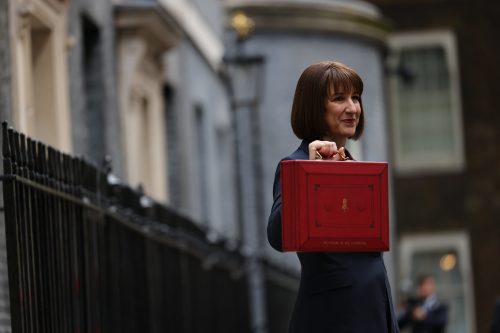Hiring activity plummets across North, as Autumn Budget fall-out takes its toll

Both the permanent and temporary recruitment sectors have suffered a substantial drop in hiring activity across the North West during November.
The latest KPMG and REC, UK Report on Jobs: North of England survey has revealed that vacancy trends turned negative, having posted renewed declines.
Starting salary and temp rate inflation, nevertheless, picked up on the month.
The report is compiled by S and P Global from responses to questionnaires sent to around 150 recruitment and employment consultancies in the North of England.
It shows that permanent hiring activity has declined at the sharpest rate since August 2023.
The rate of contraction was substantial and the second-fastest seen in nearly four-and-a-half years.
There was still some hiring hesitancy following the Autumn Budget, according to panel reports. Of the four monitored English regions, only the South recorded a sharper drop in permanent staff appointments than that seen locally.
Having moderated in October, November survey data pointed to a renewed and marked drop in temp billing across the North of England.
The decrease in billings received by recruiters was the most pronounced for just shy of four-and-a-half years and the fastest of the four monitored English regions. According to anecdotal evidence, the downturn reportedly reflected muted demand for temp staff.
Having registered broadly no change in October, vacancy trends turned negative for both types of staff across the North of England in November.
Permanent job openings were down for the first time in nine months. The rate of decrease was solid, the sharpest for 50 months, but the slowest seen by region.
On a monthly basis, November’s drop in temp vacancies marked the fourth of the year so far. The rate of decline was the quickest since mid-2020, but slower than the UK average.
Recruiters based in the North of England signalled another marked rise in permanent staff availability in November.
The uplift in permanent staff supply was linked by panel members to a combination of redundancies and greater interest among candidates for new opportunities.
The rate of expansion picked up slightly from October and remained stronger than the UK average in November.
November survey data highlighted a further rise in the supply of temporary workers across the North of England, as has been the case on a monthly basis since March 2023.
The respective seasonally adjusted index did tick down from October’s recent high, but was, nevertheless, consistent with a robust increase in availability.
The local rise was also the slowest of the four monitored English regions.
An uplift in redundancies was the primary reason behind the latest increase in temp staff supply, according to panellists.
The seasonally adjusted Permanent Salaries Index pushed further above the crucial 50.0 mark in November, thus indicating a faster rise in pay offers to new permanent workers across the North of England.
With that, the rate of growth was also the sharpest seen for three months. The local rise in starting salaries for permanent workers was the strongest of the monitored English regions.
Recruitment consultancies across the North of England recorded another rise in temp staff pay in November, thereby stretching the current run of inflation to exactly a year.
Though only modest and historically subdued, the pick up from October was sufficient enough to mean the North recorded the strongest rate of inflation of the four monitored English regions.

Chris Stott
Chris Stott, Manchester Office Senior Partner at KPMG UK, said: “We’ve seen permanent hires decline month-on-month this year, but November marked the sharpest drop in placements since August of last year, highlighting the scale of the challenges within the North labour market.
“Businesses across the region that paused hiring practices ahead of the Autumn Budget are clearly still hesitant to renew these practices as they come to terms with the impact that National Insurance rises will have on their cashflows.”
He added: “That said, the prospect of interest rates easing next year should provide a stronger basis for firms across the North to enact their growth plans in 2025, with investment in jobs a crucial part of that.”
Neil Carberry, REC Chief Executive, said: “No one should be surprised that firms took the time to re-assess their hiring needs in November after a tough Budget for employers.
“The drop in vacancies nationally was led by private sector permanent roles, and slower permanent recruitment billings across the month also reflected this trend.
“The real question now is whether businesses will return to the market as they go into next year with greater certainty about the path ahead.”
He added: “Let’s not sugarcoat that the North has seen the most pronounced fall in temporary billings for just shy of four-and-a-half years.
“But do not rush to judgement because the North was a bit of an outlier on this compared to other UK regions. And recent history shows that firms are likely to rest more on temps while they manage the current economic uncertainty.
“We expect the next monthly report will serve to emphasise again the value of flexible forms of work to companies and people who need to find work quickly after redundancy.
“For policymakers, ensuring new regulations support rather than weaken our flexible jobs market is vital – especially after the Budget.
“Ensuring rules introduced by the Employment Rights Bill are tailored to protect agency and temporary work really matters for people.”







